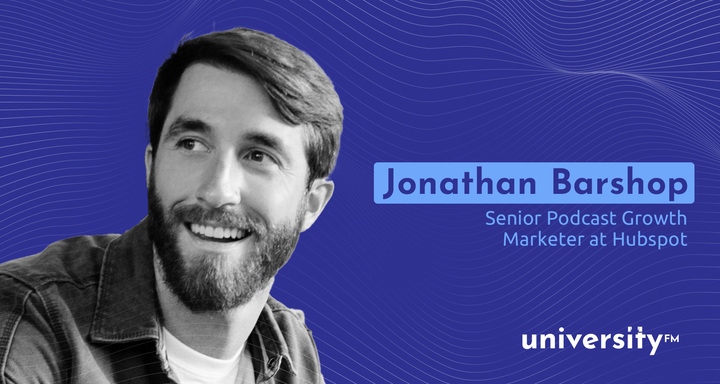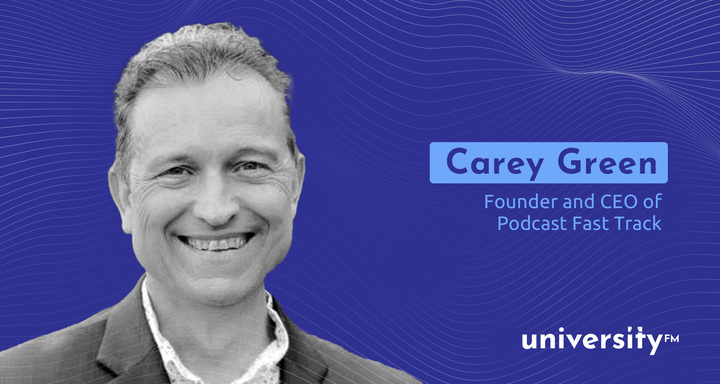
Podcast superfans are a valuable aspect of successful podcasts. Superfans not only consistently engage with podcasts themselves but can also boost podcast engagement by spreading the word about your show.
Earning the dedication of casual listeners requires a dynamic and interactive process of targeted marketing and successful communication of enthusiasm and excitement. Accomplishing this can be easier said than done.
To learn more about podcast superfans, we spoke with Ethan Fixell, VP of iHeartMedia’s Custom Podcasts team. Fixell shared some insights on how to successfully cultivate a relationship with both general audiences and dedicated fans.
What are some ways to tailor podcast content to the interests of your target audience?
Well, first of all, it’s really important that you staff up with people who understand and appreciate the subject matter. You need a host or hosts who can authentically speak to the topic and will be respected by the fans and the listeners of the podcast. You also want to make sure that you have a writer and a researcher who understands the topic. Obviously not every single person on your production team has to be a superfan, but you want to have at least one or two superfans on your side to represent those folks.
With branded content, we’re generally trying to reach as many people as possible. It might be within a certain demographic, it might be a certain subset or group of consumers, but we always want to broaden out the subject matter enough that non-superfans will also potentially want to listen. For our Game of Thrones podcast with HBO Max, for instance, we wanted to meet the needs of the superfans by making sure that we were being accurate, and that we were representing the show in the best possible light and really doing it justice. But we also wanted to make sure that we were appealing to a mainstream crowd who might not know every single character’s name and every single plot point from the books. So you have to find that balance.
What differentiates superfans from regular fans and regular listeners?
I think superfans have the potential to take things personally. If someone on a podcast says something that may be controversial within the fandom, then the superfans might take it kind of personally. And I’m not making a statement on whether that’s good or bad. There’s pros and cons to that, I think, but it’s definitely a much more emotional experience for those superfans when something is said that they don’t necessarily agree with.
How can a podcast benefit from superfans?
Ultimately, organic growth is driven by word of mouth. If someone is a big fan of a show, it’s really important that they tell everyone they know. It could be on social media, if they have a following and they’re able to promote it that’s great. Or just within their own community, or amongst their friends and family. Just telling your friends and being like, ‘hey, dude, you should watch or you should listen to this podcast’—that’s super helpful.
How does marketing play a role in building connections with your intended audience and cultivating dedicated listeners?
We want to make sure that the promos reach people with whom the show will resonate. So we might advertise our podcast on another show that has similar listeners. We might have the host of that show read an ad or promote that show online. We could also just run a spot in the middle of a show. Or we might drop an episode of the show in another feed. There’s a lot of different ways to do it.
What are some challenges of earning superfans?
I think the super fans come first and foremost. Because if you don’t have their respect then you’ll just be making something that’s watered down and has no real kind of soul or intention. Authenticity—that’s really the key. It has to be authentic, and superfans can sniff out authenticity. So you have to really pay homage to that and respect that before you consider the masses. That’s a big challenge, trying to appeal to them and earn their respect. And then also make a product that can kind of go beyond just them and can pick up other people outside of that core group.
What’s your advice for creators looking to target potential superfans?
It goes back to the first thing I said, which is that you have to have people who are authentically invested in that topic on your team. You can’t create a podcast about music theory, or social justice, or the French language without having somebody on your production team who is truly obsessed with and committed to that subject matter. So you need one or two people on your team who can be relied upon as the experts in that field. And then you also need that balance by somebody else who’s not too in the weeds.
You need experts as much as you need people who can help edit and make the show more accessible to people who might not be as familiar with the topic. It’s about finding a balance on your team of people who are obsessed with the subject matter and others who enjoy it but aren’t as attached. Together, these team members can make a great show.





